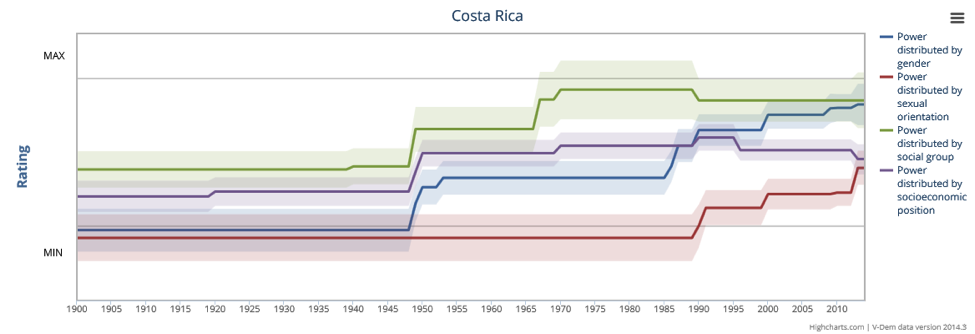Political power Costa Rica
By: V-Dem Staff
Apr 22, 2015
According to the V-Dem data, political influence in Costa Rica used to differ a lot depending on socioeconomic status, social group (differentiated within a country by caste, ethnicity, language, race, region, religion, or some combination these), gender, and sexual orientation. Only after the civil war in 1948 some progress, beginning from very low levels, is reflected in the scores for most issues. However, the situation has been quite bad for (open) LGBTs (heterosexuals and lesbian, gay, bisexual, and transgender), who have only experienced improvements since the 1990s – and still face noteworthy discrimination regarding political power. Also poor people are still far away from achieving equality regarding political influence and the performance on this indicator has not increased significantly in more than half a century. Today, social identity groups and women seem to be doing relatively well , but it is worth noticing that the maximum level of the scale (demarcating the relatively equal level of power distribution in the best performing countries) has not been reached yet.


